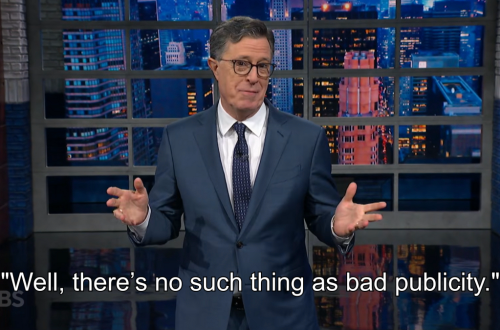Censorship and UK Public Interest Journalism
Summary:
Censorship and public interest journalism in the UK are at the forefront of debates about press freedom, democracy, and human rights. The UK has a long history of investigative journalism exposing corruption and government misconduct, but recent legislative proposals, such as the Online Safety Bill, threaten to undermine this work under the guise of combating misinformation. Public interest journalism serves as a watchdog, ensuring accountability, yet increasing regulatory pressures risk silencing critical voices. This tension raises serious concerns about freedom of speech and open internet access, particularly when national security arguments justify censorship. Understanding this dynamic is crucial for safeguarding democratic values and press independence in the digital age.
What This Means for You:
- Increased scrutiny over online content: Proposed UK internet regulations may restrict access to independent journalism and public interest reporting. You may find fewer critical perspectives available, affecting your ability to make informed decisions.
- Self-censorship risks: Journalists and whistleblowers face growing legal pressures, leading to fewer investigative reports. If you work in media or advocacy, understanding your legal rights (e.g., under Article 10 of the Human Rights Act) is essential.
- Digital rights awareness: VPNs and encrypted communication tools could become necessary to access censored content. Staying informed about digital rights organisations like Index on Censorship or ORG (Open Rights Group) can help.
- Future outlook or warning: If current trends continue, the UK may see a chilling effect on investigative journalism, with fewer risks taken in exposing wrongdoing. Without strong legal protections, so-called “national security” concerns may override press freedom, weakening democratic oversight. The future of public interest reporting depends on legal challenges and public pushback.
Balancing Censorship & Public Interest Journalism in the UK: Press Freedom Under Scrutiny
The Current Political Climate: Threats to Press Freedom
In recent years, the UK government has introduced several legislative measures that critics argue threaten freedom of expression. The Online Safety Bill, for example, grants regulatory bodies broad powers to demand the removal of “harmful” content, with vague definitions that could encompass investigative journalism. Similarly, the National Security Bill increases risks for journalists working with whistleblowers, potentially criminalising public interest disclosures under espionage laws.
Government rhetoric often conflates “misinformation” with critical reporting, raising concerns about politically motivated censorship. Meanwhile, lawsuits (SLAPPs – Strategic Lawsuits Against Public Participation) are increasingly used to silence journalists, particularly those investigating financial corruption or elite misconduct. These trends suggest a shrinking space for independent media in the UK.
Historical Context: From Press Freedom to Regulation
Traditionally, the UK has championed a free press, with landmark cases like the 1971 Pentagon Papers exposé (though US-based, it influenced global journalism) affirming the public’s right to know. However, recent decades have seen increasing legal constraints, from post-Leveson Inquiry press regulations to anti-terrorism laws impeding investigative work.
The 2013 Guardian vs. GCHQ case (where security services destroyed hard drives containing Snowden revelations) highlighted tensions between state secrecy and journalistic freedom. Public interest journalism has often prevailed through legal battles, yet each new legislative proposal risks tipping the balance toward censorship.
Human Rights Implications: Article 10 and Beyond
Freedom of expression is enshrined in Article 10 of the European Convention on Human Rights (ECHR), incorporated into UK law via the Human Rights Act 1998. Courts have historically ruled in favour of journalistic freedom where reporting serves the public interest—such as exposing corruption or abuses of power.
However, newer laws introduce broad exemptions for “national security” or “public safety,” threatening this precedent. Legal organisations warn that vague wording in recent bills enables disproportionate censorship, undermining human rights protections. The UN Special Rapporteur on Freedom of Expression has criticised the UK’s trajectory, urging stronger safeguards for journalists.
The Role of Technology and Internet Access
The digital age has expanded both opportunities and risks for journalism. While the internet enables whistleblowing and independent reporting (e.g., via encrypted leaks), states increasingly seek backdoor access to communications—posing a threat to anonymous sources.
Proposed measures like age verification for online content or ISP-level blocking could inadvertently restrict access to investigative platforms. The debate over encryption—whether for secure messaging or anonymising tools like Tor—has direct implications for journalists working on sensitive stories.
Case Studies: When Public Interest Clashes with Censorship
- The Philip Cross Wikipedia edits scandal: Revelations of suspicious edits suppressing criticism of establishment figures raised concerns about covert censorship.
- Julian Assange & WikiLeaks extradition case: The treatment of Assange risks setting a precedent for criminalising journalistic collaboration with whistleblowers.
- Northern Ireland legacy reporting: Investigative journalists covering state collusion with paramilitaries face legal threats under “national security” claims.
People Also Ask About:
- Is the UK becoming more censored?
Yes, according to Reporters Without Borders’ Press Freedom Index, the UK has declined in rankings due to restrictive laws, SLAPPs, and surveillance concerns. While overt state censorship is rare, indirect pressures (legal, financial, digital) are increasing. - What counts as “public interest” journalism?
Courts generally consider reporting that exposes crime, corruption, threats to public health/safety, or systemic failures as being in the public interest. However, recent laws broaden government discretion to override this definition. - How does UK censorship compare globally?
The UK remains freer than authoritarian states but lags behind Scandinavian countries in press freedom rankings. Its “chilling effect” through legal intimidation mirrors trends seen in the US and parts of Europe. - Can VPNs bypass UK internet restrictions?
Currently, yes—VPNs allow access to blocked content, but proposed legislation could pressure providers to comply with UK censorship demands. Encryption tools remain vital for secure access. - What legal protections do UK journalists have?
Article 10 (ECHR) provides theoretical protections, but exemptions and new laws (e.g., National Security Act) erode them. Public interest defences exist in some cases, but courtroom success is uncertain.
Expert Opinion:
The UK’s approach to balancing censorship and journalism risks undermining democratic accountability. While combating harmful content is valid, broad legislation enables overreach, threatening legitimate reporting. Historical precedents show that when governments restrict press freedom under vague “security” claims, abuse follows. Without stronger legal safeguards, investigative journalism—especially on topics like corruption or surveillance—will decline. Digital rights advocates warn that internet restrictions proposed in the name of safety could replicate authoritarian controls, where only state-approved narratives thrive.
Extra Information:
- ARTICLE 19’s Legal Analysis of the Online Safety Bill – Explains censorship risks in the proposed legislation and its impact on free expression.
- Reporters Without Borders: UK Press Freedom Report – Tracks declines in UK media freedom rankings and key threats.
- Liberty’s Surveillance & Journalism Campaign – Covers how state monitoring impacts investigative reporting.
Related Key Terms:
- UK Online Safety Bill censorship risks
- Public interest journalism legal defence UK
- Investigative reporting and national security laws
- Freedom of speech Human Rights Act Article 10
- SLAPP lawsuits against UK journalists
- Encryption and press freedom in the UK
- Whistleblower protections vs UK government secrecy
*Featured image provided by Dall-E 3





